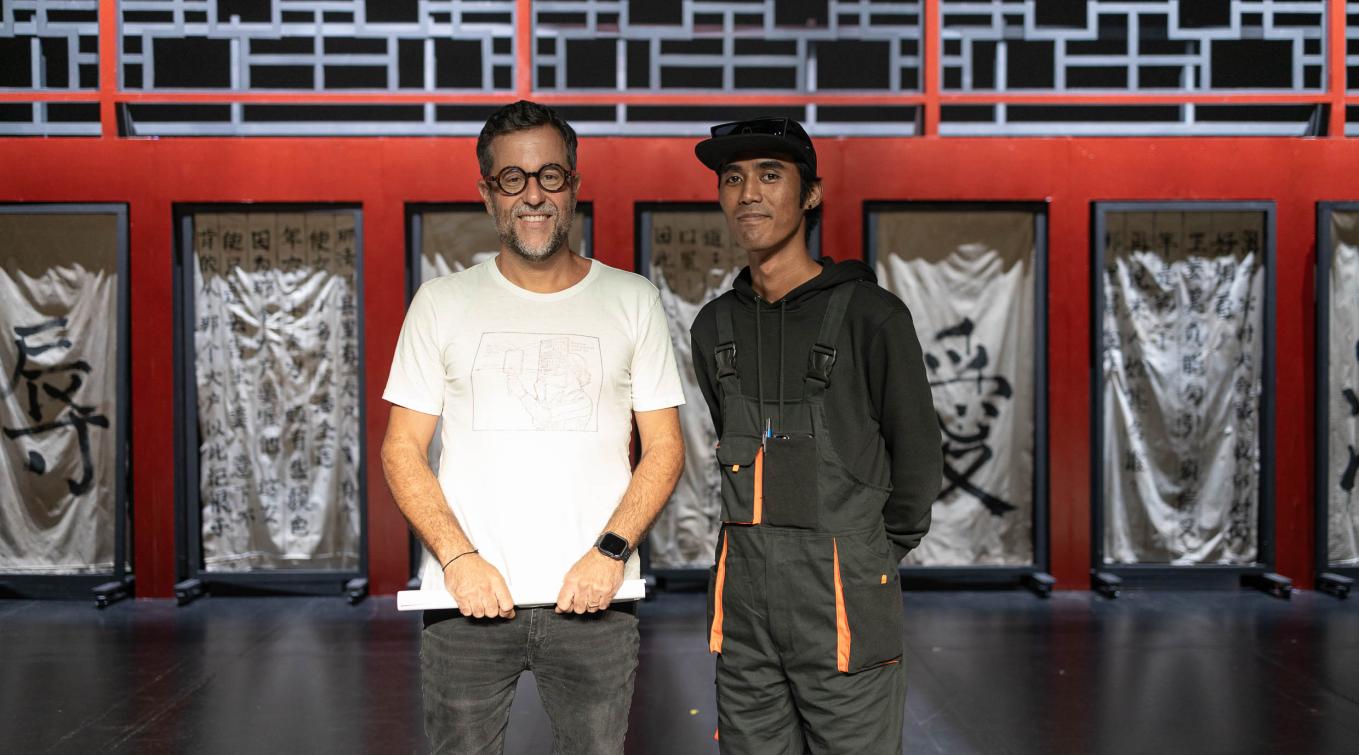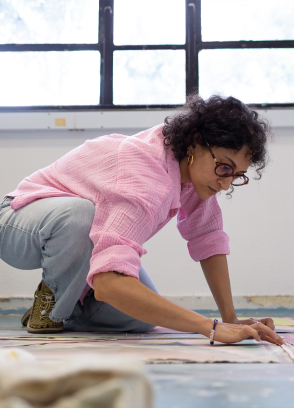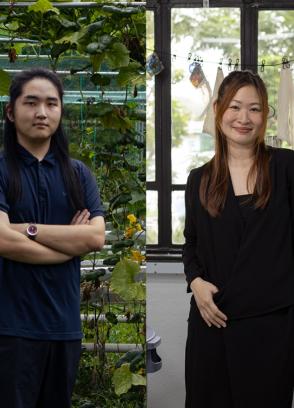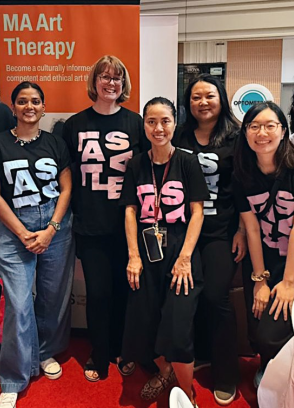From left: Diploma in Theatre Production and Management artist in residence Carlos M. Reis and Year 2 student Muhammad Amin Bin Mohamad Ali.
LASALLE’s Diploma in Theatre Production and Management programme takes students through the broad array of disciplines involved in the mounting of successful theatre and live events. In Year 1, students get to try their hand in areas as diverse as production management, stage lighting, audio, media, scenic construction, prop-making, stage mechanics, costume and stage management, before gradually narrowing down their area of specialisation – either management, scenography or technical components – based on their strengths and interests.
The area of scenographic skills is very sparsely represented in Singapore. Students at LASALLE are blessed with a large fully equipped scenic workshop.” – Programme Leader Michael Budmani
One of the things that distinguishes LASALLE from any other programme is that it is the only programme in Singapore that has the scenographic elements – stage carpentry, scenic art, scenic design – within its syllabus. As Programme Leader Michael Budmani points out, “The area of scenographic skills is very sparsely represented in Singapore. Students at LASALLE are blessed with a large fully equipped scenic workshop.”
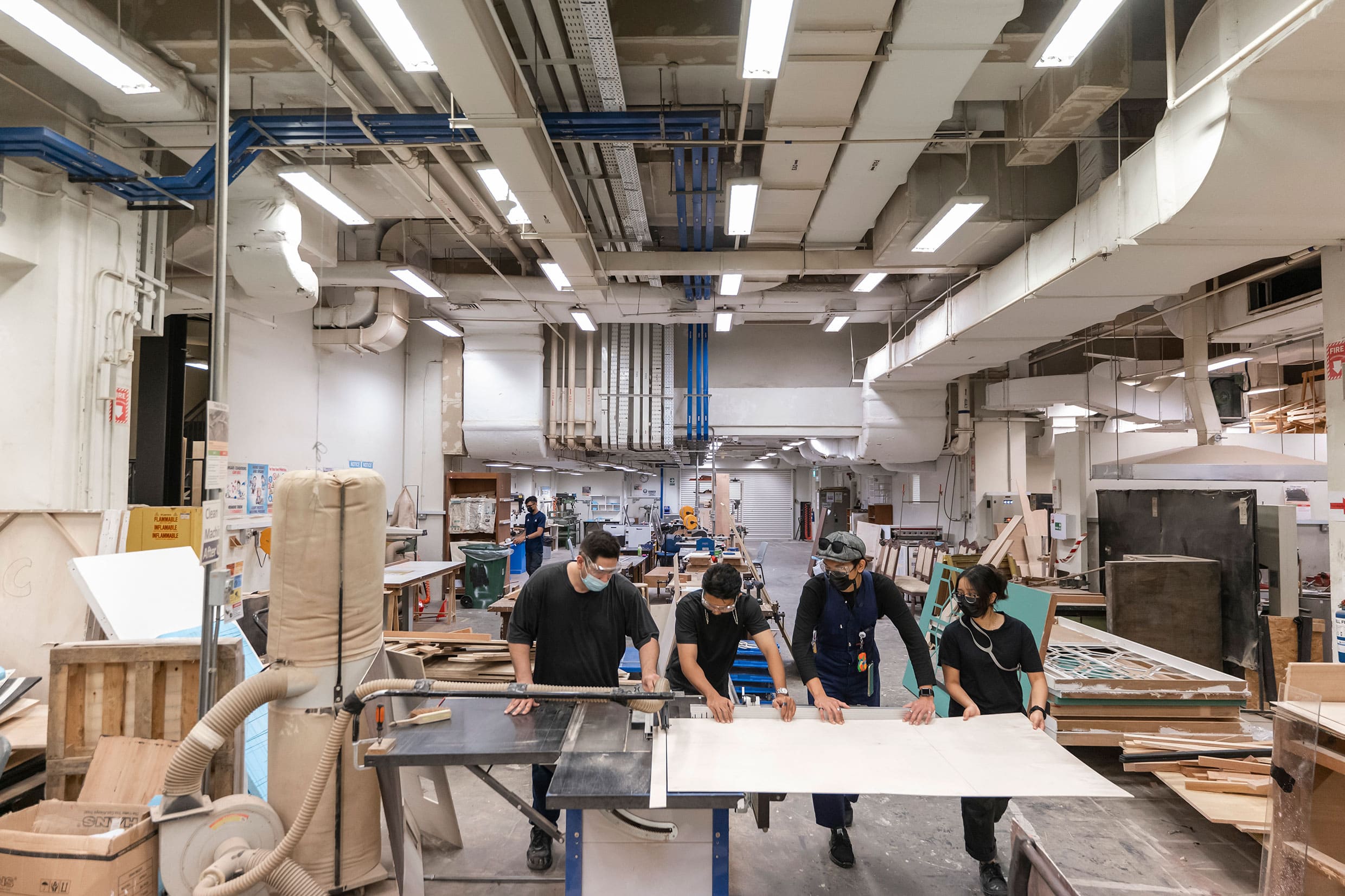
This has enabled students to get hands-on experience in building ambitious and innovative sets – from a revolving set for Vassa (2021), to the immersive, labyrinthine set of rooms and living spaces in Summer of Love (2023). Erecting such large scale structures tests the students ability to work as a team and solve problems creatively, as well as develop transferable skills in deadline management and leadership.
To supplement students’ learning journeys, the School of Dance & Theatre also regularly brings in local and international artists in residence, who work side-by-side with students to familiarise them with best practices from around the world. “Guest artists, be it from Singapore or overseas, bring rich and broad skill sets, but just as importantly, passion about what they do,” explains Michael. “It is so important for students to witness how passionate the professionals are, otherwise theatre can feel like very hard work.”
To see how it all comes together, we take you behind-the-scenes with Year 2 Diploma student Muhammad Amin Bin Mohamad Ali as he works on the BA (Hons) Acting production Pan Jinlian, helmed by visiting Chinese director Chen Gang, and with a set design by artist in residence Carlos Moral Reis.
Bringing to life Song dynasty China
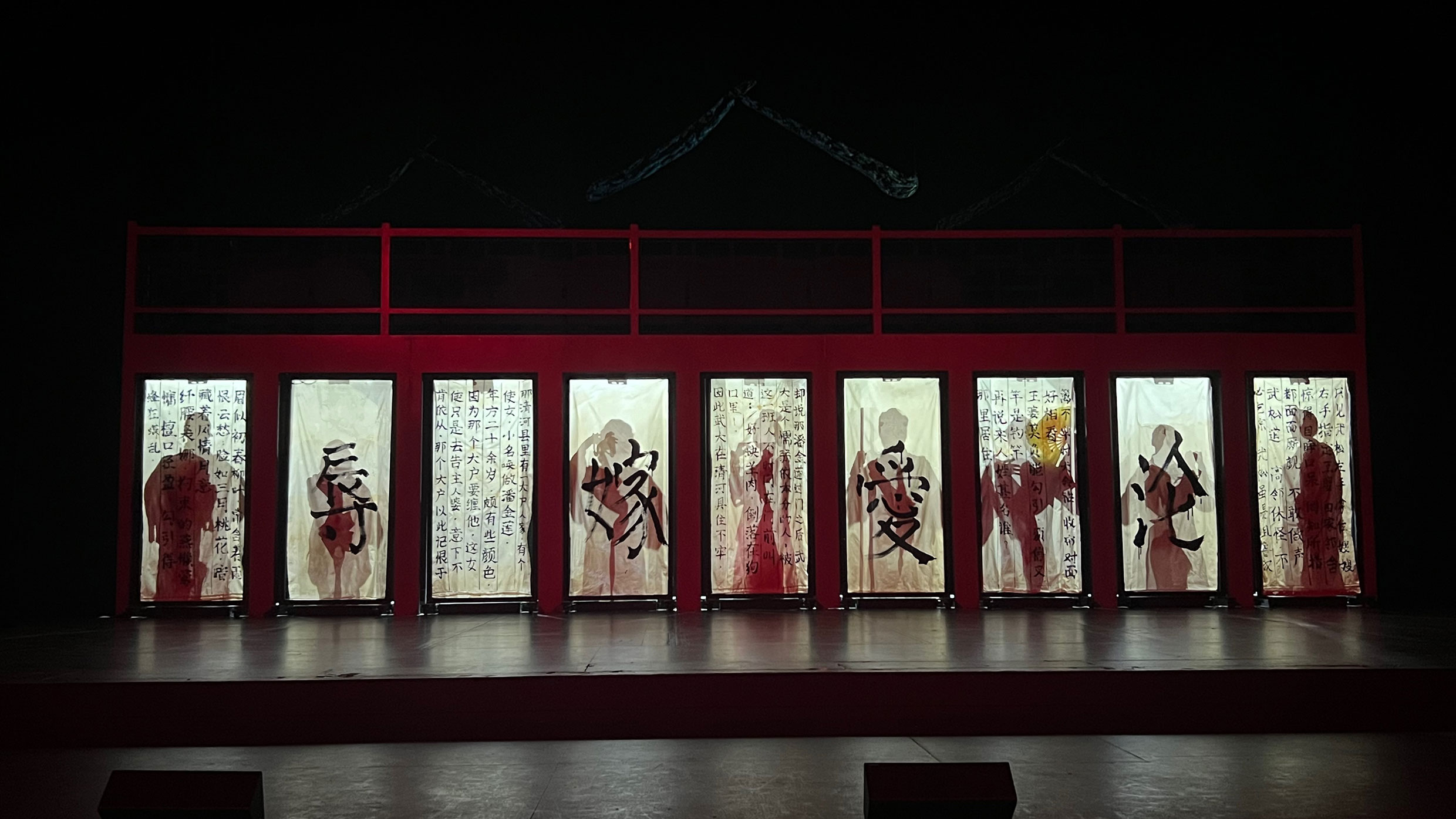
As Head of Construction for Pan Jinlian, Amin shadowed Carlos closely to observe how the seasoned professional developed his design from a dramaturgical standpoint and executed the build in the workshop.
As the play was adapted from the Chinese classic Water Margin, Carlos drew inspiration from the visuals and architecture of the Song dynasty. He also realised director Chen Gang’s vision of designing a set that adhered to the classical staging rules of Chinese opera.
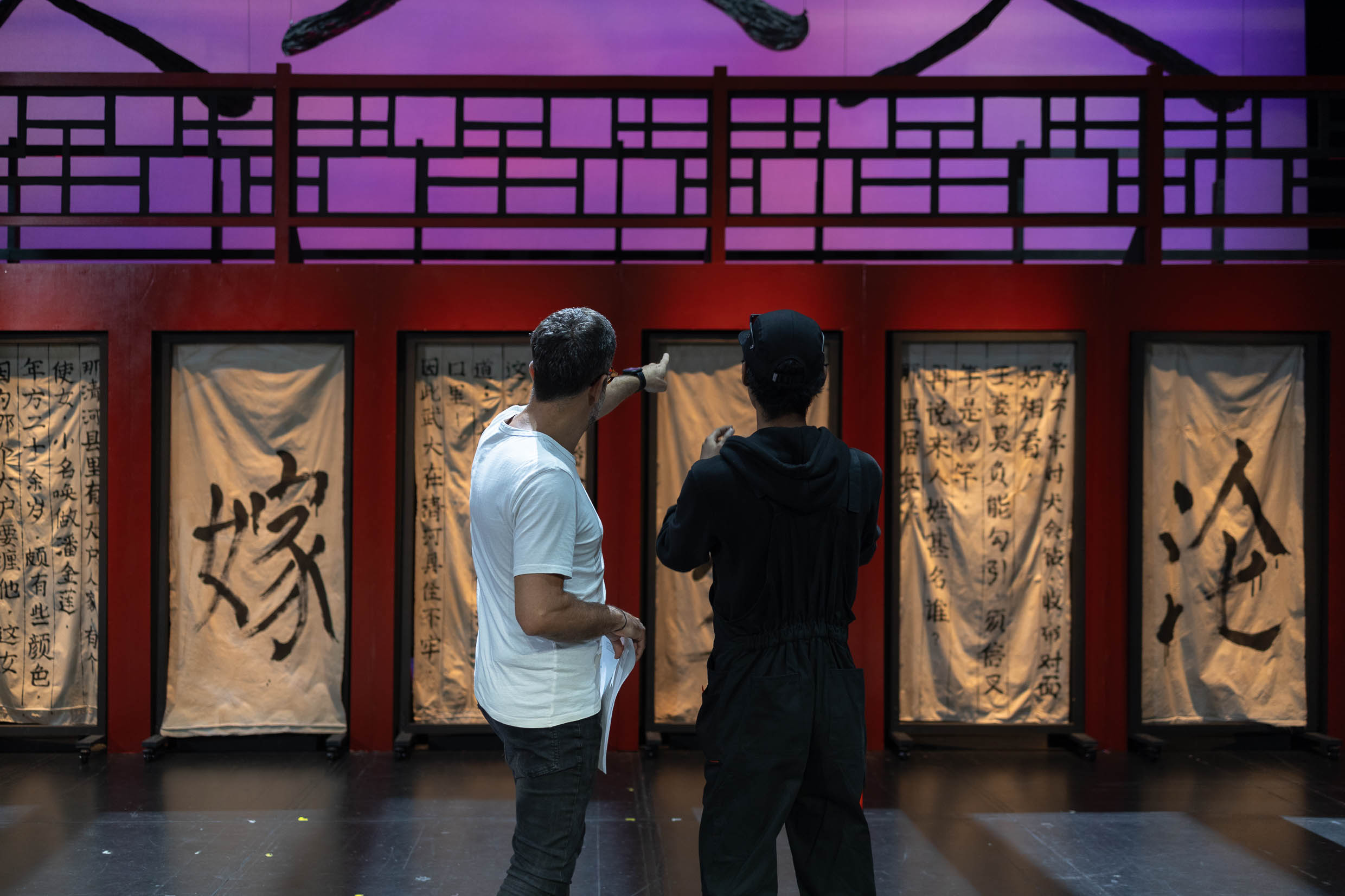
Theatre is all about artistic and cultural exchange, and in the end, it is a blend of different ways to see the world that offers a unique outcome.”
When asked what it was like working with a multiethnic cast and crew on a production rooted in Chinese performance tradition, Carlos was effusive. “Working in a multicultural environment is always a pleasure. Theatre is all about artistic and cultural exchange, and in the end, it is a blend of different ways to see the world that offers a unique outcome.”
Yet even though theatre transcends borders and most processes involved are universal, every country or theatre brings new challenges. For instance, Carlos was struck by the differences in materials in set-building between Singapore and Europe. While Europe uses pine, a softwood that is light and easy to work with in their sets, Singaporean sets largely use meranti, a hardwood, which is heavier and more solid, and thus requires more time and preparation when building a set piece.
However such differences also led to unexpected breakthroughs. “With Carlos’ advice, my team and I built the platforms in the set in ways we’ve never done before,” recounted Amin. “These newer platforms built with his input were steadier and less complicated that what we used to construct in earlier productions.”
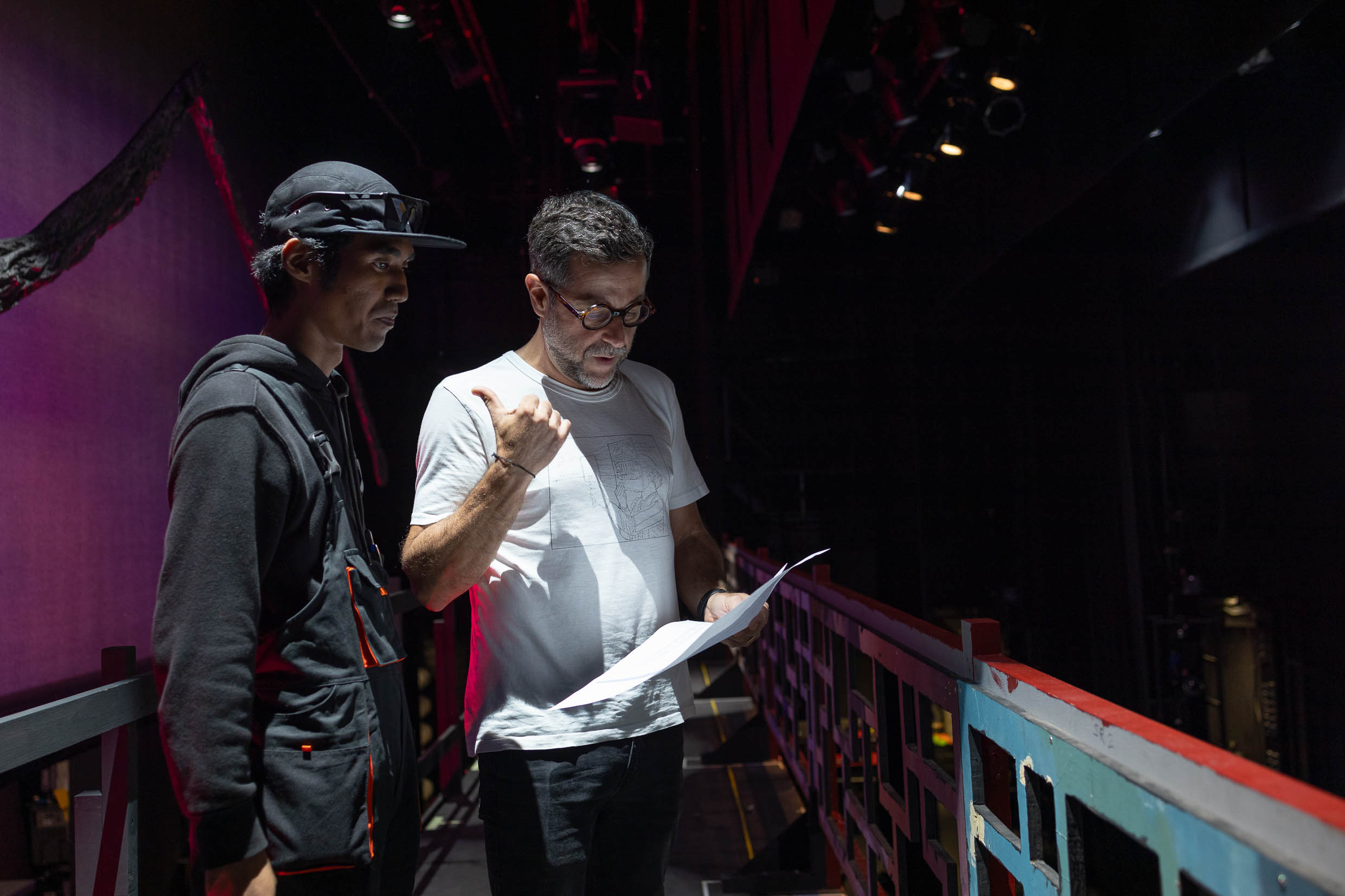
The openness with which student and artist communicated and collaborated in the set build was due to Carlos’ candid approach to working with students. Having lectured at East 15 Acting School in the UK for the past decade, the set designer quickly built rapport with the Theatre Production and Management students at LASALLE.
“My way of working with students is to treat them as colleagues and make them comfortable enough to ask questions, give suggestions and even disagree, which I find to be an important quality,” said Carlos. “I find that this approach helps them become reliable, proactive and resourceful individuals.”
And true enough, the students rose to the challenge, providing Carlos with several suggestions, some of which were incorporated into the final result.
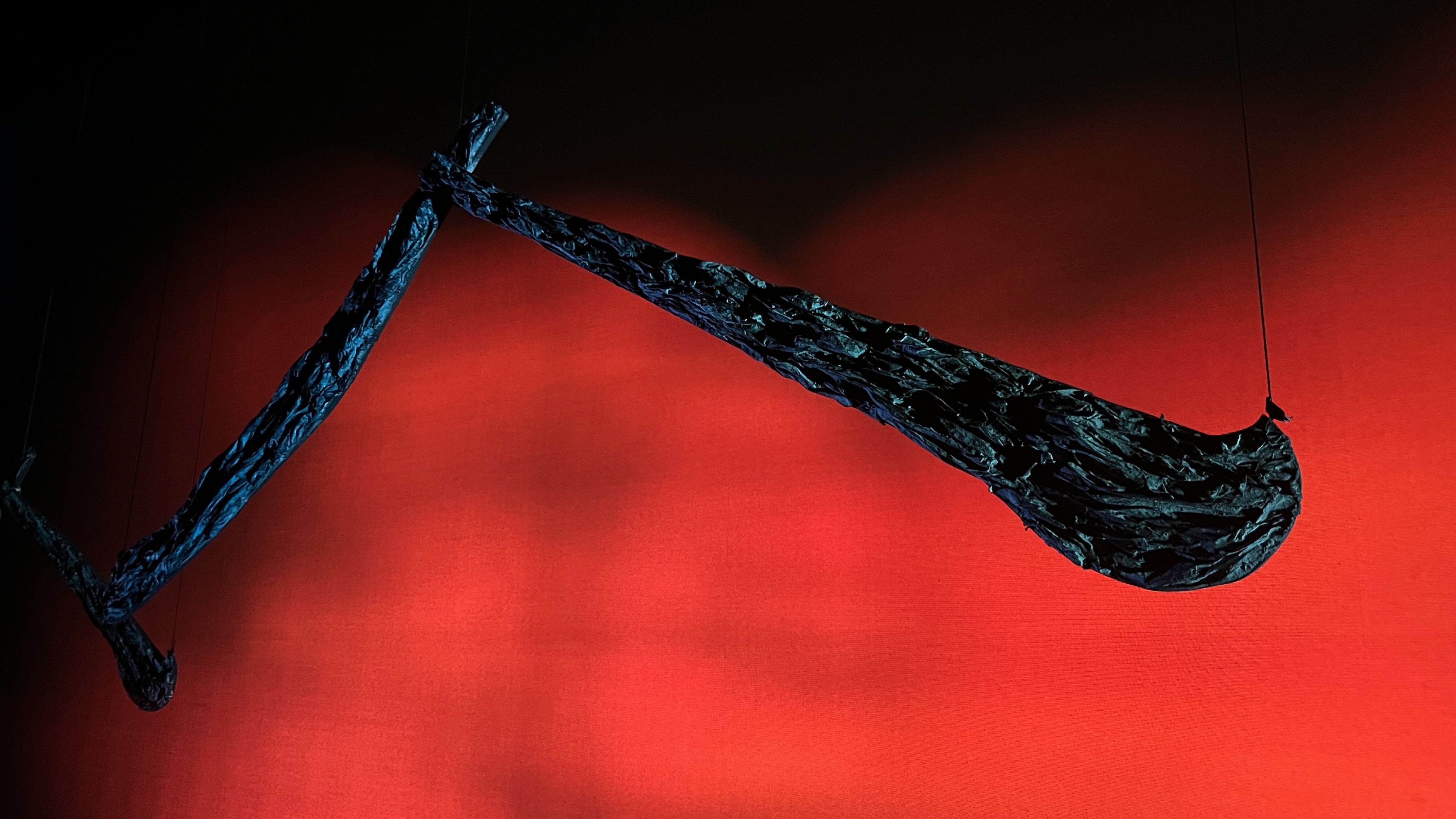
“The way we textured the hanging rén characters was a result of a long brainstorming session between two students and me,” Carlos pointed out. “Personally, I think this openness is the best way for them to learn how to engage in a meaningful theatrical life.
For Amin, who enrolled in the Diploma in Theatre Production and Management programme to acquire hands-on skills to build a career in set design and building, this learning experience has not only given him practical knowledge but also helped to develop his leadership. He oversaw a team of builders consisting of Year 1 and Year 2 classmates and picked up many lessons in how to lead.
“I have learnt that as a leader, you have to delegate your work, trust your peers or colleagues and share the spotlight,” Amin reflected. “Especially while we’re in a school setting, this is a safe place where we can learn and grow together. Hopefully I can continue to better myself to lead my own team of builders professionally in the near future.”
Leadership skills are not the only transferable skill set that students graduate with. Theatre being innately collaborative means that Theatre Production and Management students work with the many stakeholders in each performance, and in doing so, they learn to plan and manage complex artistic and communication aspects of a production.
“Everybody on a production team is creative – even if their roles are not framed as such,” reiterates Michael. “Whatever your role within the production team, your role exists as part of a story that someone is trying to tell.”
Apply now for our undergraduate programmes.

